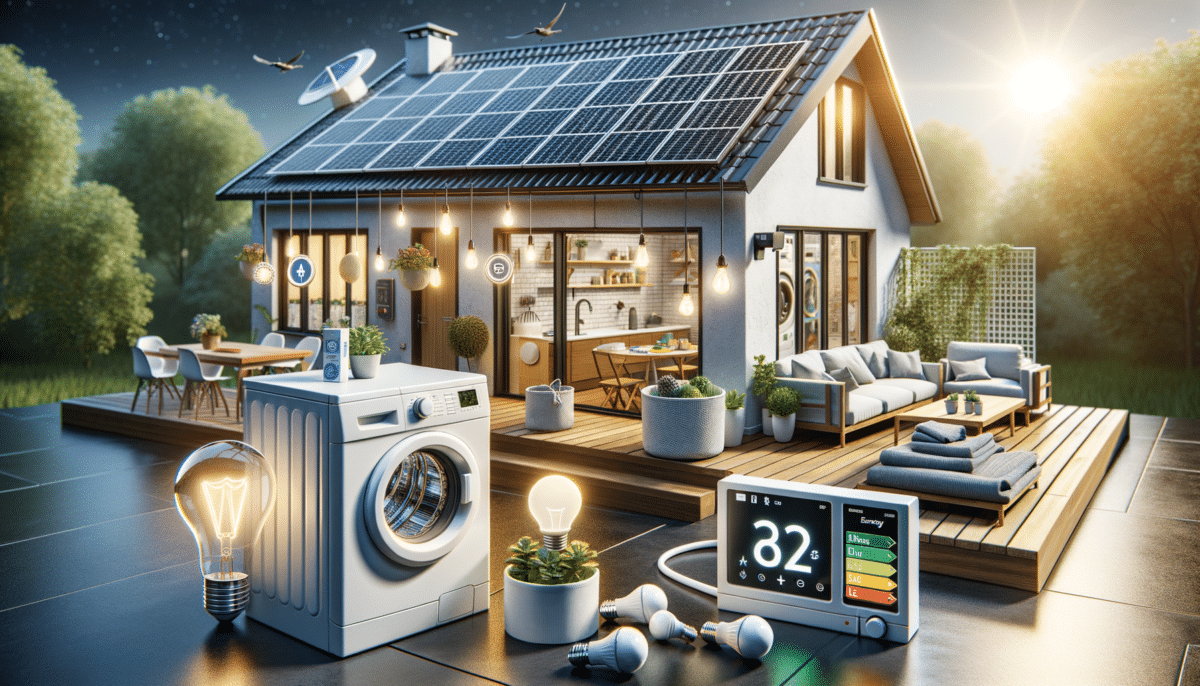Understanding Energy Efficiency
Energy efficiency refers to the method of using less energy to provide the same service. This concept is central to reducing energy waste and lowering greenhouse gas emissions. By adopting energy-efficient practices, individuals can significantly reduce their carbon footprint, contributing to a healthier planet. Energy efficiency is not just about using less energy; it’s about making smarter choices that lead to sustainable living.
For example, replacing incandescent bulbs with LED lighting can save up to 80% of the energy used for lighting. Similarly, modern appliances with energy-saving features can drastically cut down electricity usage. The key is to look for energy ratings and choose appliances that consume less power without compromising on performance.
Furthermore, energy efficiency is intertwined with technological advancements. Innovations such as smart thermostats and energy-efficient heating and cooling systems are designed to optimize energy use. These systems learn from user behavior and adjust energy consumption accordingly, ensuring comfort while minimizing waste.
Benefits of Energy Efficiency
Adopting energy efficiency measures comes with a host of benefits. Firstly, it leads to substantial cost savings on utility bills. By reducing energy consumption, households can enjoy lower electricity and gas bills, freeing up funds for other essential expenses.
Secondly, energy efficiency contributes to environmental conservation. Lower energy consumption means reduced demand for fossil fuels, which are major contributors to environmental pollution. This results in fewer greenhouse gas emissions, helping combat climate change.
Moreover, energy-efficient homes are often more comfortable. Improved insulation and better temperature regulation create a more pleasant living environment. Additionally, energy efficiency can increase property value, as modern buyers are increasingly looking for homes with sustainable features.
Practical Steps to Improve Energy Efficiency at Home
Improving energy efficiency at home doesn’t require drastic changes. Simple steps can make a significant difference. Start by conducting an energy audit to identify areas where energy use can be reduced. This can be done professionally or through DIY methods using online tools.
Once you have identified the key areas, consider implementing the following:
- Switch to LED lighting throughout your home.
- Install programmable thermostats to regulate heating and cooling.
- Seal windows and doors to prevent drafts and improve insulation.
- Use energy-efficient appliances and unplug devices when not in use.
- Consider renewable energy sources like solar panels for long-term savings.
These steps not only reduce energy consumption but also enhance the overall efficiency of your home, making it more sustainable and cost-effective.
The Role of Technology in Energy Efficiency
Technology plays a pivotal role in enhancing energy efficiency. Smart home technologies, such as automated lighting systems and intelligent thermostats, allow for precise control over energy use. These devices can be programmed to operate only when needed, thus reducing unnecessary energy consumption.
Additionally, advancements in building materials and design have led to more energy-efficient homes. For example, double-glazed windows and better insulation materials help maintain indoor temperatures, reducing the need for heating and cooling.
Furthermore, the integration of renewable energy sources, such as solar panels and wind turbines, into home energy systems can significantly lower reliance on non-renewable energy. These technologies not only provide clean energy but also offer long-term financial benefits through reduced energy bills.
Conclusion: Embracing a Sustainable Future
Energy efficiency is more than just a trend; it’s a necessary shift towards a sustainable future. By making conscious choices in our daily lives, we can reduce our environmental impact and enjoy financial savings. Whether it’s through simple home improvements or embracing new technologies, every step towards energy efficiency is a step towards a healthier planet.
As awareness grows, more individuals are realizing the importance of energy-efficient living. This movement not only benefits the environment but also enhances our quality of life, proving that sustainability and comfort can coexist harmoniously.
